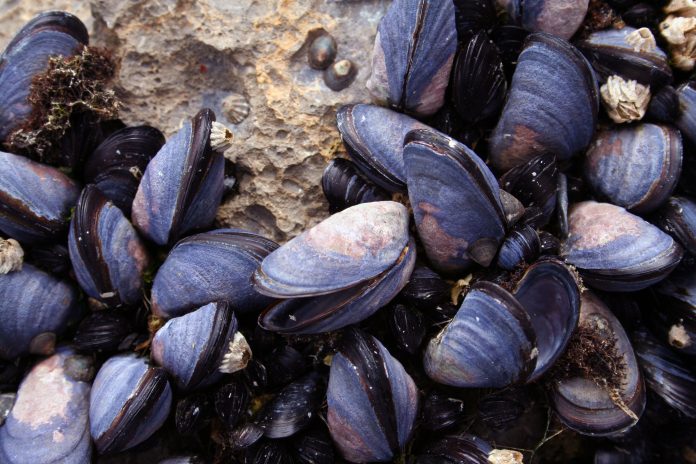Scientists reveal that some marine species are able to protect others from dangers of climate change – by shielding them from heat
When climate change hits certain countries, they are able to adapt and survive. Places with excessive resources can change their agricultural systems, migrate a community, or implement technology. Now, a team finds that fluctuating temperatures in marine environments can cause some species to protect one another from harm.
The study, led by Texas A&M University at Galveston, was detailed in the journal Ecology by Laura Jurgens and colleagues at the University of Vermont and the University of California, Davis.
Funded by the National Science Foundation, the study the team explored how tiny crabs and isopods living on rocky shorelines react to warming in their environment.
Researchers found that the mussel bed that these animals live in are actually able to protect them from temperature swings and keep them from drying out on hot days.
“Ecological air conditioning”
“These mussel beds provide a sort of ‘ecological air conditioning system’ in their canopies, just like forests,” Jurgens said.
“The results show that conserving habitats formed by plants and animals can help buy time for heat-sensitive species, helping them weather the near-term effects of climate change. But it also means that habitat destruction can make other species more vulnerable to climate warming.”
The need for climate tolerance and adaptations
Climate change poses as unprecedented danger to marine and coastline ecosystems, and little is known as to whether many forms of marine life will be able to adapt to changes such as ocean warming and habitat destruction.
“These results show another way foundation species, such as mussels along rocky shores, have a huge impact on the wider biological community around them,” said Cynthia Suchman, a program director in NSF’s Division of Ocean Sciences.
Laura Jurgens has pointed out that without the protection of mussel beds, some marine species cannot survive under present-day conditions let alone the environmental changes we can expect to see occurring over the next decade due to climate change.
“But they can tolerate a worse-case climate scenario for perhaps as long as the year 2099 as long as the mussel bed environment remains intact,” she said.
“This research shows that it’s important to protect vulnerable habitats like mussel beds, which are threatened by trampling and destructive recreational harvests of mussels in many environmental changes of the U.S.”











